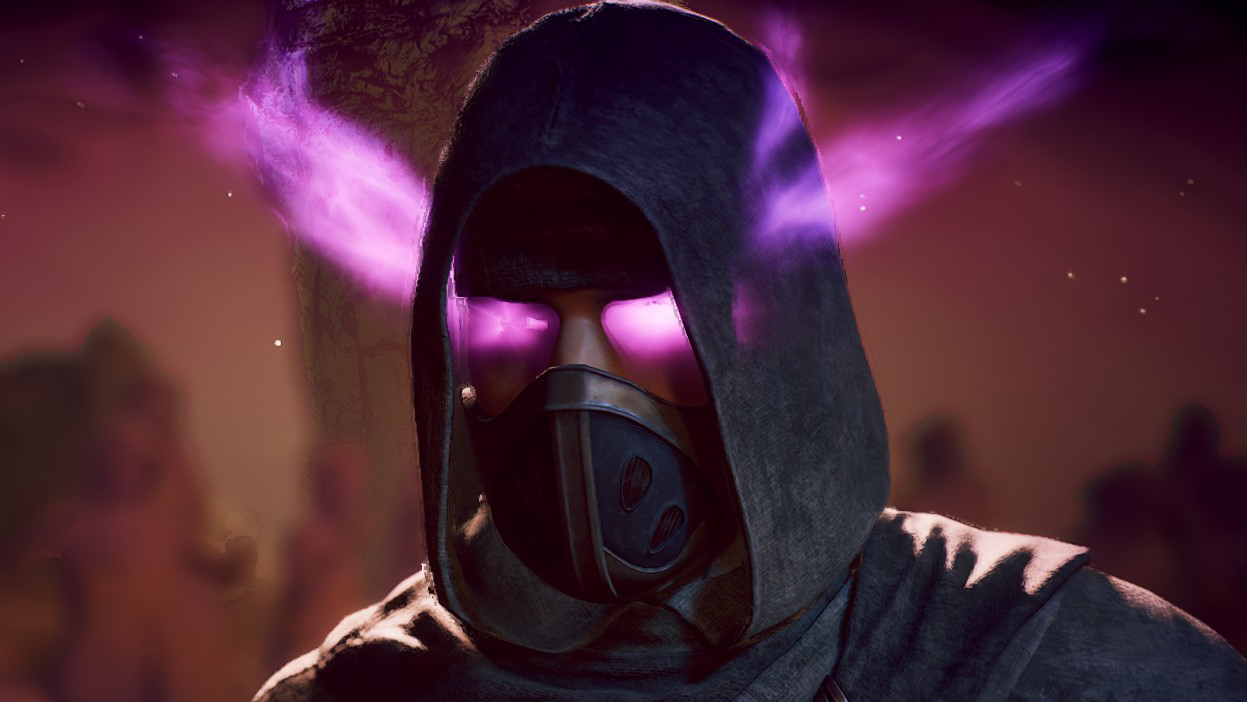
The developers of The Lord of the Rings: Return to Moria took a frankly over-the-top approach with their Fourth Age-set Dwarven-focused survival-crafting game: they created the entire secret Dwarven language just so players can hear their characters use it in-game.
While Tolkien fans have worked to develop the Dwarven language, called Khuzdul, over the years, the developers at Free Range Games went one step further and worked with a linguist to create a full Khuzdul grammar.
That linguist is David Salo, who worked on the languages of Tolkien for the Lord of the Rings and The Hobbit film trilogies, expanding the languages (particularly Sindarin, one of the languages spoken by the Elves) by building on vocabulary already known from published works, and defining some languages that previously had a small published vocabulary.
This collaboration created a full lexicon and a full grammar of Khuzdul, game director Jon-Paul Dumont told IGN in an interview at gamescom 2023. Free Range Games used this to recreate Khuzdul in-game. It means that when you create your dwarf, you can choose to tell it to always speak Khuzdul.
Khuzdul extends to Return to Moria’s eye-catching singing mechanic. Sometimes your dwarf will have ‘inspiration’ and burst into song, a buff that may, for example, lighten the burden of mining. Some songs were written by Tolkien himself. Some are sung completely in the dwarven language.
According to Dumont, the inclusion of the Dwarven language started out as “just a fun idea”, but quickly snowballed. “There are some people on the internet that have built their own versions of the language and we were like, ‘oh, maybe we could use these.’ And then we realised they weren’t based as authentically on Tolkien’s work as we wanted.
“We went out to find somebody that could help us write it. And in the act of making it, it became more important than just that cool idea at the beginning. So we were like, ‘it’d just be neat if we could say some Dwarven phrases.’
“But as we started to get the first deliveries back from the linguist, and as I started to dig deeper into Tolkien’s life, he did what we inadvertently did. He started by building the language and then thinking about, ‘who are the people that have this language?’ Then every delivery that came back from the linguist became, ‘how can we use this?’ This word sounds like it could be a creature that maybe doesn’t exist anymore. Let’s invent that creature and get it into the game.”
Dumont admits his enthusiasm around the recreation of Khuzdul perhaps went a little too far. He theorised that because the dwarves are miners it would be extremely loud in Moria, so they would have developed a sign language to help communicate.
“That became a little too far,” Dumont joked. “I talked to the animators, I’m like, ‘hey, could I have them do sign when they’re talking?’ And then they’re like, ‘come on dude, how much do you want?’ But it became super important to us, and now we have something that is unique.”
We joked about getting Duolingo to do a little learn Dwarvish
The work done by Free Range Games and Salo is particularly exciting because of how little we’ve read or heard of Khuzdul from the books, films, and TV shows. While some Khuzdul names appeared in early versions of The Silmarillion, a very limited vocabulary was previously known. Even in-universe, little is known of Khuzdul because the Dwarves kept it secret.
The inclusion of the Dwarven language is sure to delight Lord of the Rings fans, but it comes with risk. Tolkien experts may have something to say about Free Range Games’ interpretation of Khuzdul, or indeed its representation of the Fourth Age (70 years since the ring was destroyed) and the state of Moria at the time.
Still, Free Range Games is already thinking about working out a way to share its Dwarven language with the wider community. No promises, Dumont stressed, but there’s a hope it can be published. “We joked about getting Duolingo to do a little learn Dwarvish or something like that. Right now we’re so focused on shipping, those are just fun ideas.”
Wesley is the UK News Editor for IGN. Find him on Twitter at @wyp100. You can reach Wesley at wesley_yinpoole@ign.com or confidentially at wyp100@proton.me.





